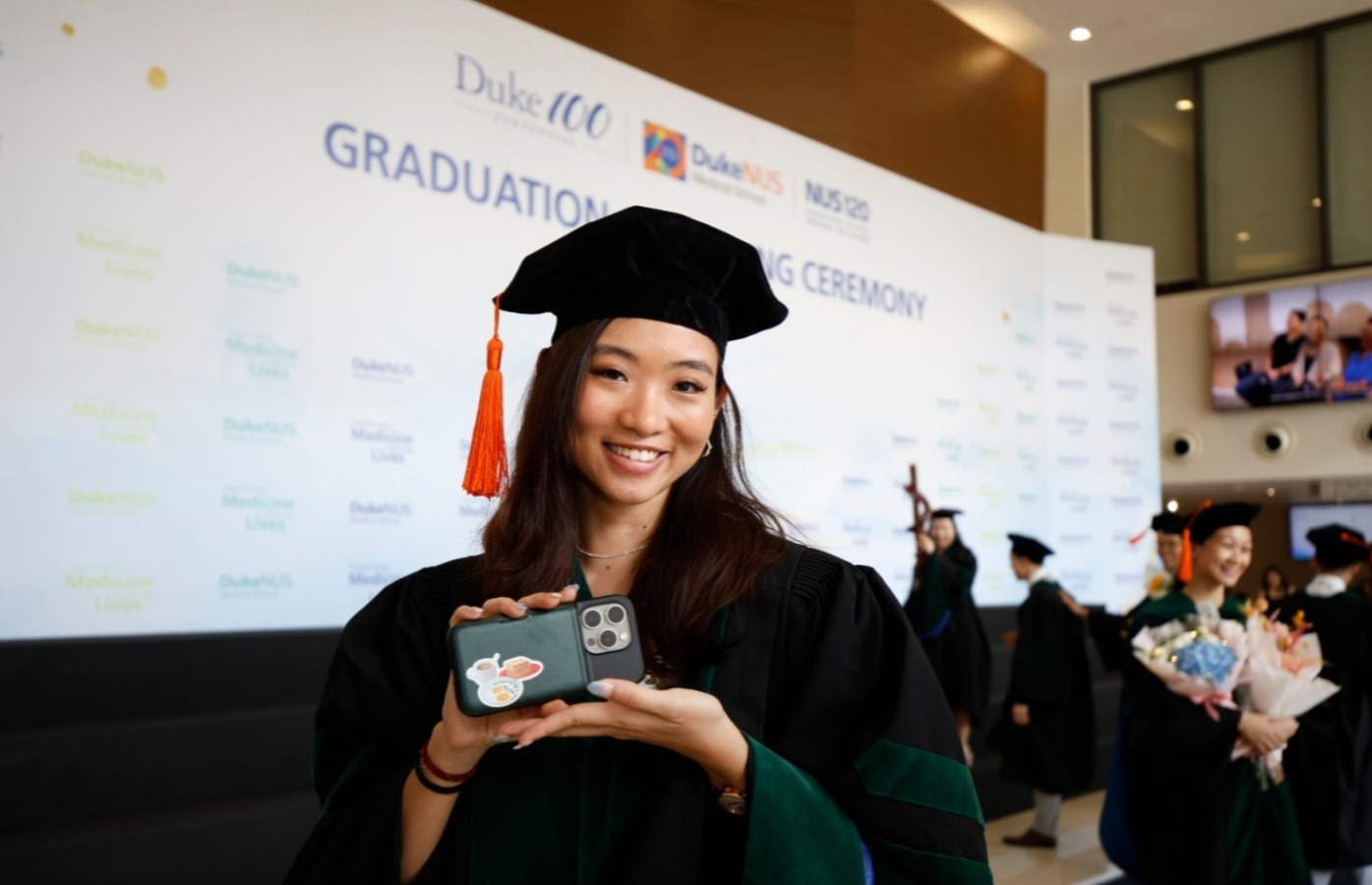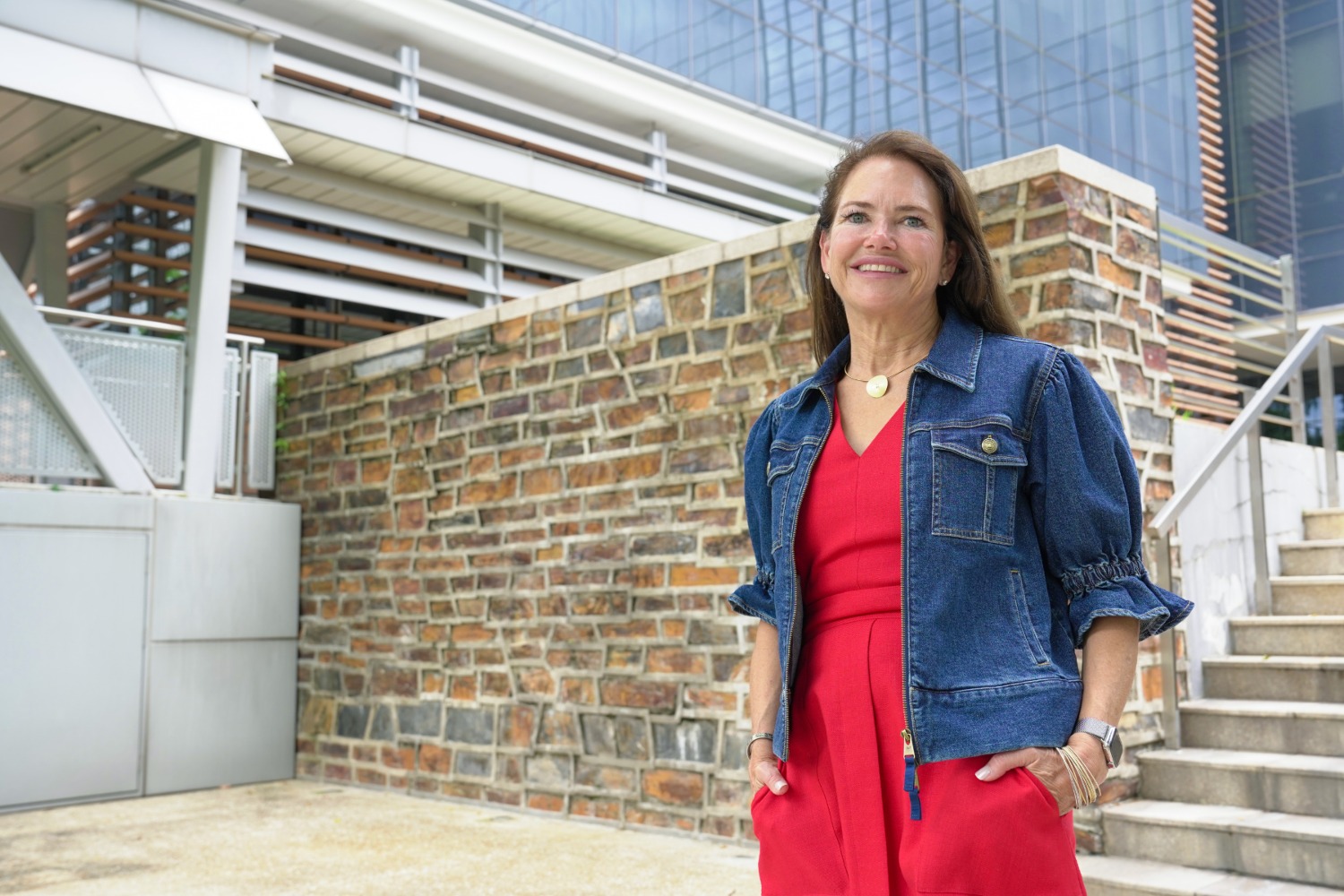Here are five stories that stood out this quarter:
Duke-NUS marks 20 years of innovation with its largest cohort of graduates
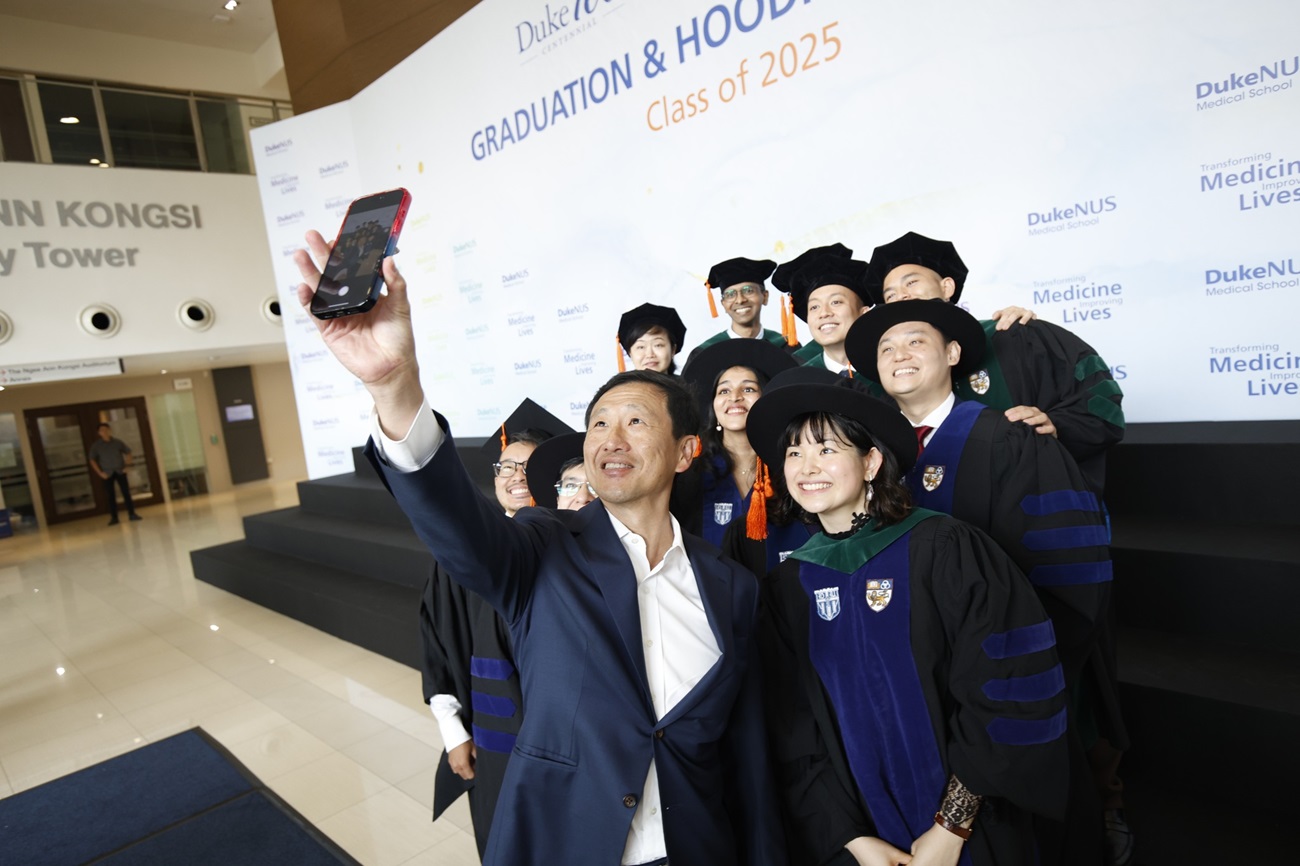
Celebrating 20 years of transformative medical education, Duke-NUS graduated its largest cohort yet on 31 May—the Class of 2025, which includes 72 Doctor of Medicine (MD) graduates—five who are also earning PhDs—and 27 PhD candidates.
Among those present to witness this milestone event were Guest-of-Honour Mr Ong Ye Kung, Minister for Health; Professor Mary Klotman, Executive Vice-President for Health Affairs at Duke University and Dean of Duke University School of Medicine; Duke-NUS Governing Board Chairman Mr Goh Yew Lin; SingHealth Group CEO Professor Ng Wai Hoe; and the Class’ loved ones.
The ceremony also saw the first group of individuals graduate from the Duke-NUS conditional admissions pathways with the National University of Singapore and the Singapore University of Technology and Design—designed specifically to attract talent from engineering, information technology and other undergraduate programmes.
“So to the Class of 2025: Be the doctor who listens. The advocate who cares. The catalyst that embraces and brings about change for the better. Be the leader who inspires. Be the human who is resilient, unfazed by challenges, and lifts the spirits of others through your optimism. I have every confidence in the good that you will bring.”
Minister Ong Ye Kung
Patrick Tan appointed Dean-designate of Duke-NUS

Professor Patrick Tan assumed the role of Dean-designate of Duke-NUS on 1 July 2025 and will helm the School as its fourth Dean from 1 January 2026, succeeding Professor Thomas Coffman. A clinician-scientist who helped build Duke-NUS’ research enterprise, Tan now steps into a leadership role poised to shape the School’s next chapter.
“The healthcare landscape is evolving rapidly, driven by shifting demographics, intensifying demands on healthcare, and technological innovations. These are major challenges, but they also create huge opportunities. As Dean, I look forward to enhancing our long-standing Academic Medicine partnership with SingHealth and harnessing the collective strengths of Duke University and NUS, our parent institutions, to deepen our understanding of diseases and advancing medical solutions that will make a real difference to patients.
“By combining the power of cutting-edge research, medical education and translational innovation, Duke-NUS is uniquely positioned to shape the future of medicine. Together with our valued partners, I am immensely grateful for the opportunity to work with our faculty, students, alumni and stakeholders to build on this strong foundation and drive the School’s next stage of development in Singapore and the world.”
Professor Patrick Tan
MAGNET: A S$10 million push to tackle muscle-loss in ageing
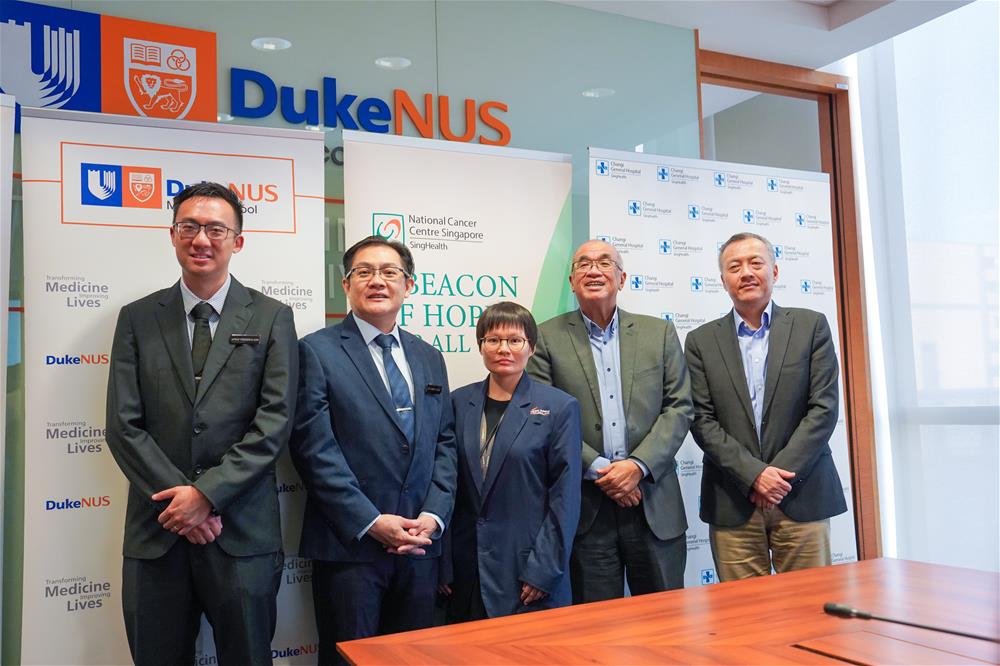
The SingHealth Duke-NUS Academic Medical Centre will spearhead a national research initiative to combat sarcopenia—muscle-loss that occurs with age. Named MAGNET (Mechanistic Investigation and Clinical Innovation for Sarcopenia Diagnosis and Therapy), the project marks the nation’s first comprehensive, large-scale programme focused on sarcopenia and is set to position Singapore as a global leader in sarcopenia research. It is expected to bring critically needed innovations to how the condition is detected and treated, particularly among Asian patients.
“The health burden of sarcopenia is growing rapidly as our society ages, yet we are still in the early stages of understanding how it develops and how best to treat it. With MAGNET as Singapore’s first nationwide research initiative dedicated to this disease, we are bringing together the country’s leading minds and capabilities to deliver breakthroughs in both science and care.”
Professor Wang Yibin
Corresponding Principal Investigator of the MAGNET Programme and Director of the Cardiovascular & Metabolic Disorders Programme at Duke-NUS
A smarter way to shop: New digital toolkit nudges healthier grocery choices
.png?sfvrsn=c4d4f8ba_1&MaxWidth=1300&MaxHeight=1300&ScaleUp=false&Quality=High&Method=ResizeFitToAreaArguments&Signature=16C671B29FD290149AF99614B36566D954D96F7F)
How can we encourage consumers to make healthier grocery choices online? A Duke-NUS team comprising Assistant Professor Soye Shin and Professor Eric Finkelstein from Duke-NUS’ Health Services and Systems Research Programme have designed and tested a new digital toolkit that aims to do just that.
Publishing in the American Journal of Preventive Medicine, the team found that when simple but strategic digital features, such as colour-coded nutritional quality signals and a healthier alternative prompt, were added to an online grocery shopping platform, they improved the nutritional quality of shoppers’ carts significantly.“As online grocery shopping is rapidly gaining ground, we wanted to see if we could design low cost, scalable online tools that could be used to nudge consumers toward healthier choices at the point of purchase. These results show the potential of these tools to improve diet and health outcomes.”
Assistant Professor Soye Shin
Duke-NUS and T Cell Diagnostics team up to simplify T-cell analysis
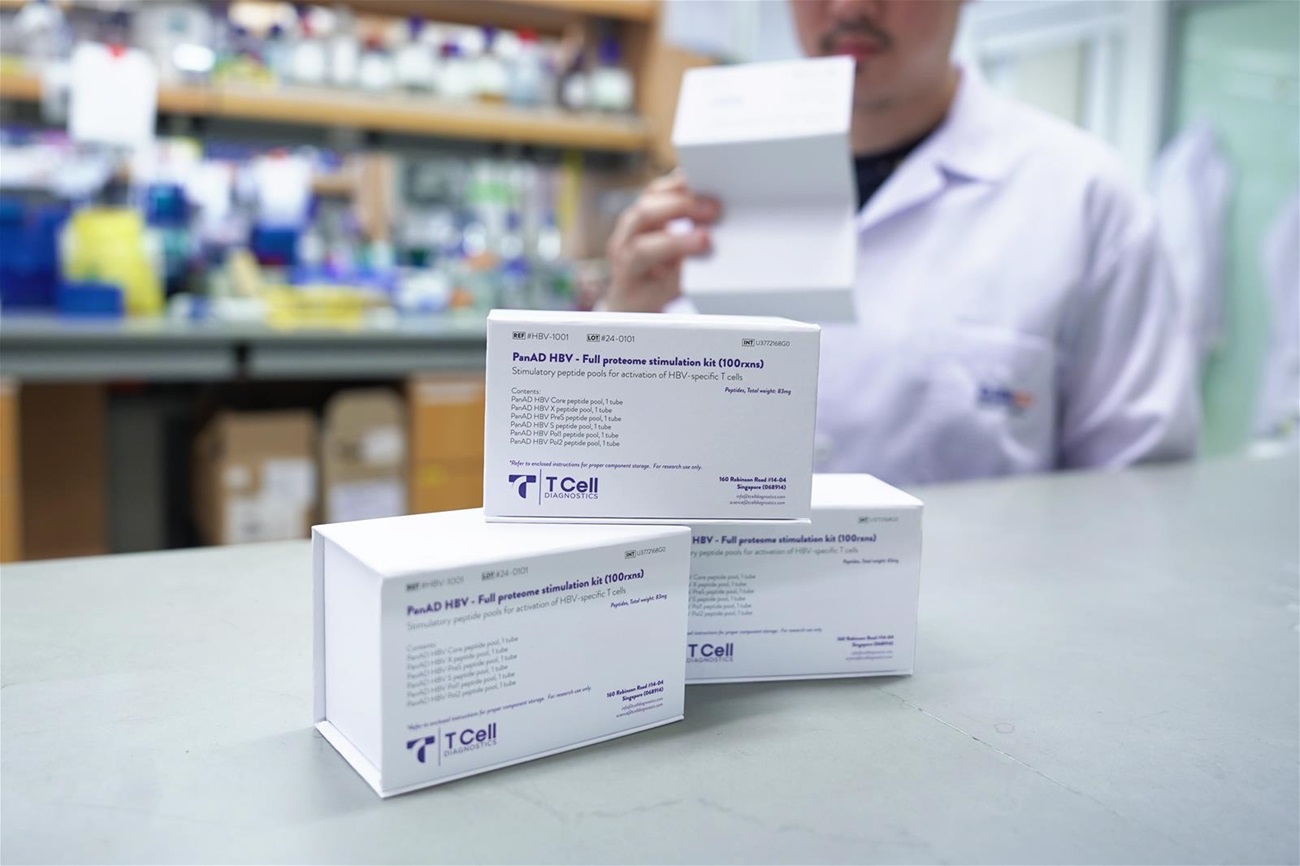
A Duke-NUS spin-off, T Cell Diagnostics (TCD), has licensed an intellectual property and its related know-how from the School to develop point-of-care assays that simplify the analysis of T-cell responses.
By enabling tests to be performed quickly and easily at the site of patient care—such as in clinics or hospitals—without the need for specialised lab equipment, these point-of-care tests provide rapid results, helping doctors and researchers to make timely decisions.
Established in 2021, TCD is a spin-off by Professor Antonio Bertoletti, Assistant Professors Nina Le Bert and Anthony Tan from Duke-NUS’ Emerging Infectious Diseases Programme.
“We are impressed by the simplicity and performance of the test kit, which has allowed the testing of hundreds of patient samples with ease and precision. It is heartening to see that the interest in measuring T-cell responses induced by vaccination or infection is gaining traction as such knowledge empowers healthcare providers and researchers to better understand immune responses in patients, in turn driving innovations to improve patient care.”




